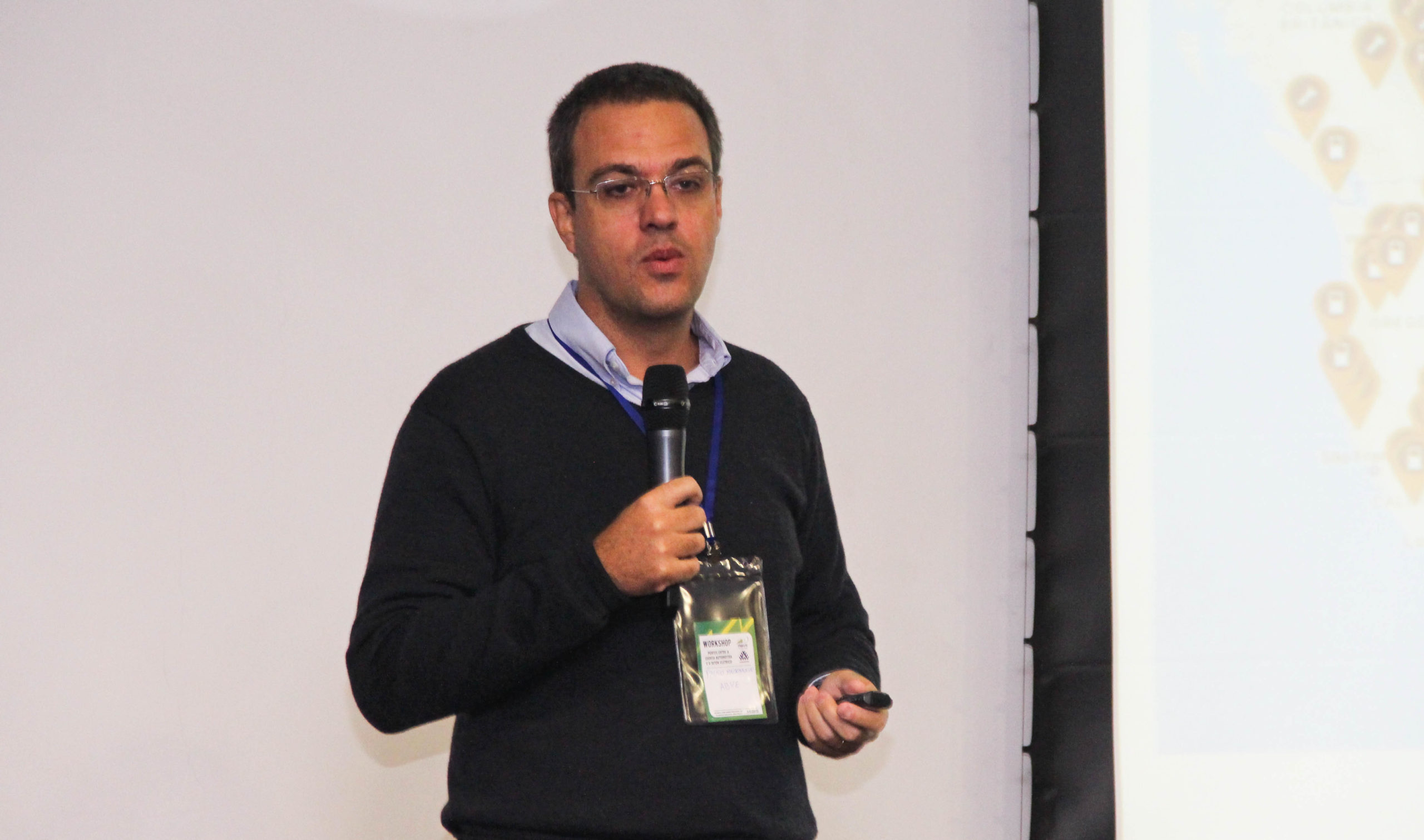RIO DE JANEIRO, BRAZIL – Paulo Maisonnave has always worked in the field of electricity. He says that when he graduated in electrical engineering a little more than 20 years ago, he didn’t imagine things like battery-powered cars or energy generation from sunlight.
Now, the head of the E-Mobility area at Enel X, one of the largest companies in the electricity sector globally, has been working hard to develop the electrification of mobility in Brazil. Without citing numbers, the executive says that the results of 2021 were impressive and that he has just doubled the goals for 2022.
How was 2021 for the Enel X E-Mobility area?
It was impressive. The energy transition and electric mobility exceeded the most optimistic expectations in terms of market, knowledge, quality, technological advancement, sales of vehicles, chargers, and solutions. This advance has a lot to do with partnerships, such as the one Enel X has made with the parking lot chain Estapar. It is one of the arms of one of the largest energy groups in the world, which is Enel. We bridge the gap between providing the energy needed to drive electric mobility and actually providing mobility solutions.

I always joke with customers and suppliers that I don’t know how to sell a car or a scooter. So I depend on someone who wants to use electric energy to get around. The automakers, for example, are great partners, and we are thrilled that they are looking at electric mobility and making this transition faster and faster.
Brazil is a great market, and the manufacturers are offering more and more vehicles. We also have partnerships with insurance companies, car rental companies, dealers, and importers. And also with gas stations, which are starting to offer chargers. It is a very integrated area. If you don’t sell a charger, you don’t sell a car, and vice-versa.
How do you see the future of energy sources such as photovoltaic?
I worked in the power generation sector at Enel and went through hydroelectric and thermoelectric plants. Brazil has a production capacity that is the envy of many countries. I witnessed the birth of the wind energy sector and, later, the photovoltaic one. The evolution of these solutions has accelerated a lot and, together with electric mobility, has evolved more than we could have expected a few years ago.
I say with certainty that photovoltaics is the cheapest form of energy generation in Brazil. If someone said this five years ago, no one would believe it. Brazil has abundant land and sun. It allows us to diversify our energy matrix. Today, wind and solar energy production are the great lusts and have excellent growth opportunities.
Will there be charges for recharging at public stations?
The demand for electric vehicles is still small in Brazil. In 90% of the cases, recharging is done at home or work. So, there is still no need to recharge the vehicle on the street. We also have the culture of leaving the car in garages. Even when away from home, it is common for Brazilians to stop at parking lots. It facilitates the expansion of the recharging offer in private places.
There are pilot projects created to meet institutional, marketing, and testing demands, by large automakers and energy companies. The legislation allows charging. However, it is necessary to know if the consumer is willing to pay. Unlike the combustion vehicle refueled during the transportation process, the electric vehicle is recharged when not in use. For example, when you arrive home at night, you plug it in, and it recharges while you sleep. At the mall, it is recharged while you are out shopping. So the value-added process is different. Some companies have started charging for recharging, but it is challenging to have a financial return if there is no understanding that the economic model is different.
What are the goals for 2022, and how do you achieve them?
Right at the beginning of the year, we doubled our goals. We partnered with Zletric, a startup in the recharging area. It brings a lot of technology, vision, and capacity, especially in the B2C market. Enel X is one of the three companies with the best strategy and execution of electric mobility projects globally. In Brazil, we are creating and adding solutions. The “ecovaga” (recharging point in parking lots) is very aggregating. New companies, technologies, and opportunities are arising. In Europe, you can take an electric car in Lisbon and go to Norway using the same recharging app. It’s like your cell phone, which automatically changes carriers.
By 2022, the expectation is that the fleet of cargo vehicles will grow. Our biggest challenge will be to offer solutions for vans and trucks. Large companies are electrifying their fleets. Enel X can deliver a complete, intelligent, economically active, and long-term solution. Brazil is always surprising, and the growth perspective is exponential. Obviously, we have a long-term vision, which bets on sustainability and the relationship with the supplier. Enel X has photovoltaic generation, distributed generation, energy efficiency, and optimization. New vehicles are arriving, and even a company (Great Wall Motors) that will produce only electrified models. And cars that are a little cheaper are already starting to appear. I believe that in two years this market will be crazy.
What tips would you give to Paulo from 20 years ago?
The funny thing is that electrical engineering was one of the most conservative courses. The professors were the oldest, and the books were from 1950. On my first day as a trainee, Enel was doing a digital power conversion, and I didn’t understand a thing. I asked an older engineer, and he didn’t know anything about it either. There I understood that you would learn as technology advanced. So I would say: ‘Open your mind because new opportunities will arise.
With information from O Estado de S. Paulo

